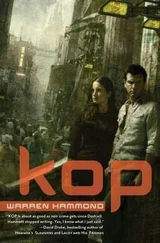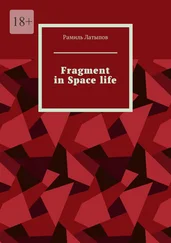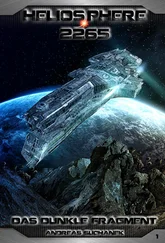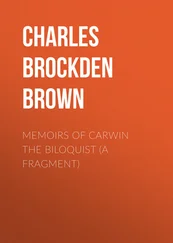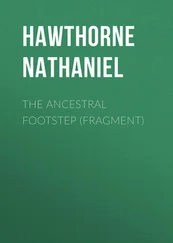Warren Fahy - Fragment
Здесь есть возможность читать онлайн «Warren Fahy - Fragment» — ознакомительный отрывок электронной книги совершенно бесплатно, а после прочтения отрывка купить полную версию. В некоторых случаях можно слушать аудио, скачать через торрент в формате fb2 и присутствует краткое содержание. Жанр: Путешествия и география, на английском языке. Описание произведения, (предисловие) а так же отзывы посетителей доступны на портале библиотеки ЛибКат.
- Название:Fragment
- Автор:
- Жанр:
- Год:неизвестен
- ISBN:нет данных
- Рейтинг книги:5 / 5. Голосов: 1
-
Избранное:Добавить в избранное
- Отзывы:
-
Ваша оценка:
- 100
- 1
- 2
- 3
- 4
- 5
Fragment: краткое содержание, описание и аннотация
Предлагаем к чтению аннотацию, описание, краткое содержание или предисловие (зависит от того, что написал сам автор книги «Fragment»). Если вы не нашли необходимую информацию о книге — напишите в комментариях, мы постараемся отыскать её.
Fragment — читать онлайн ознакомительный отрывок
Ниже представлен текст книги, разбитый по страницам. Система сохранения места последней прочитанной страницы, позволяет с удобством читать онлайн бесплатно книгу «Fragment», без необходимости каждый раз заново искать на чём Вы остановились. Поставьте закладку, и сможете в любой момент перейти на страницу, на которой закончили чтение.
Интервал:
Закладка:
“Very dramatic, Thatcher.” Stapleton regarded him with curiosity. “But if you believe that, how do you get up in the morning? For that matter, how do your students?”
“We have spliced the genes of jellyfish into mice to make them glow green in the dark,” Thatcher replied dryly. “We have manipulated Hox genes to give houseflies a hundred legs and millipedes six. We have inserted the genes of insects into plants and the genes of plants into animals. There is practically nothing on Earth that mankind does not use and nothing that he will not ‘improve’ if given the chance. And whatever is left, we carelessly discard. Pollution and global warming are merely precursors to the environmental apocalypse to come. Before the century is out, if we have not destroyed ourselves first, or even if we have, we humans will probably have pounded the final nail into Mother Earth’s coffin. If we were just wiping ourselves out it would be of little concern: we merely got what we deserved, like many other obnoxious species before us. But at the hands of the rational ape, life on Earth and in her seas is likely to suffer a mass extinction as nano-engineered genetic viruses cascade through keystone species and collapse whole ecosystems, one after another. All multicellular organisms will disappear as single-celled organisms are forced back to the drawing board to reinvent what mankind has fatally sabotaged. If that’s what you call dramatic , Professor Stapleton, I agree. And if that’s what you call me for pointing it out, then so be it. Intelligent life is the ultimate bio-hazard. Any worthy opponent would be a welcome discovery, for the planet.”
A smattering of grim applause broke out at Thatcher’s oration.
“Look, I’m as much an environmentalist as the next guy,” Stapleton argued, “unless the next guy’s you , I guess, but don’t you think that’s a smidgen on the absolutely hopeless side?”
Thatcher eyed the green plastic container from which Stapleton spooned his lunch. “What in heaven’s name are you eating , Professor?”
Stapleton swallowed a mouthful and dabbed his lips with a napkin. “Calves’ brains and scrambled eggs. I tried it on leave in Paris when I was in the Army. My wife makes it for me sometimes.” He scooped up another bite.
“I see.”
“I’m on the Prisby Diet.”
Thatcher shook his head. “A quack diet.”
“Hey, I’ve lost twelve pounds. You should try it.” Stapleton took a sporkful and chewed it defiantly.
“And so now you are eating cow brains.”
“Actually, baby cow brains. With mango chutney,” Stapleton corrected, his mouth full.
“Surely you’ve heard of mad cow disease , Doctor?”
Stapleton swallowed. “OK, let’s say you’re right, Thatcher. In twenty years, the average gestation time of CJD, you and I will both be in an old folks’ home anyway. At least I’ll be the one laughing.” He winked and dug for another bite.
There were gasps of disgust and snickers around the table.
“Professor Stapleton,” Thatcher sighed, “you are a living object lesson of my book’s thesis. In what natural scenario would the brains of a domesticated, hormone-injected, Franken-fed, genetically engineered calf become a part of the diet that your Homo sapiens body evolved over the last five million years to consume?”
“Thatcher,” Stapleton shook his head, “the great thing about human intelligence is that we don’t have to do things in one way or another. Human beings might not do these things that you predict. Don’t you account for that possibility?”
Thatcher stared off into space as a memory of his smiling son running to the sliding glass door, toward the pool, flashed in his mind. He remembered the pressure on his foot as he’d nudged the door open… “It will happen because it can happen, Professor. It is merely a matter of time. Probability fulfills itself just as a Japanese pachinko game always fills up with a bell curve of ball bearings. If there were only one or a few of us, human virtue might play a role. But there are billions of us. The cumulative effect of our allegedly ‘free’ will over a period of time is indistinguishable from instinct or predestination. Since sentient beings can do anything, they will do anything, no matter how stupid or destructive, over time. You still haven’t read my book, have you, Professor Stapleton? I’m afraid my optimistic conclusion is that only a preemptive extinction event that eliminates intelligent life can save an environment once it is infected.”
“There are plenty of cultures that have managed to live in harmony with their environment for thousands of years, Thatcher,” Stapleton retorted. “What about North American Indians. Or Polynesians?”
“The Polynesians imported bird viruses that decimated native populations wherever they went, and Native Americans coincidentally arrived just before all the greater fauna of North America vanished. But I must point out that one of the most pristine environments humans inhabit is Papua New Guinea, famous for its head hunters, who may well have contributed directly to the preservation of their environment.”
“Jiminy Cricket, how do you feel about us , then, Thatcher?” Stapleton demanded.
Thatcher smiled. “As Jonathan Swift said, ‘All my love is toward individuals, but principally I hate and detest that animal called man.’”
There was an uneasy ripple of laughter around the table.
“Charming. You give environmentalists a bad name, my friend.”
“Well, I’m sorry, Dr. Stapleton. But environmentalists are people, too.” Thatcher winked at the gallery.
“Oh, I see! No points for effort, eh?”
“It won’t make any difference.”
“Dear Lord, you are such a Cassandra.”
“One thing most people seem to forget about Cassandra is that as unpalatable as her dire predictions were, she was always right.”
“She wasn’t happy about it, though.”
“I’m happy all the way to the bank, my friend.” Thatcher chuckled, and the students in the gallery applauded their rally.
“I don’t think it’s funny!” Sharon protested. “You’re talking about the end of life on Earth as we know it.”
“It’s all right.” Thatcher raised a calming hand. “You’re quite right, Frank. Eat your brains. It is inevitable.”
Thatcher shrugged and smiled, and everyone laughed except for Sharon. She could not understand how her mentor maintained his graceful sense of humor about the bleakest of truths. “Unless, of course, Henders Island is not a hoax,” Thatcher added serenely, winking at Sharon. He rose and raised his plastic cup of wheat beer. “To Henders Island!”
To this, everyone toasted, and the Muddy Charles churned once more with eddying scientific debates.
Thatcher noticed a large man wearing sunglasses and a black suit who had sat alone throughout lunch nursing a single Coke. A thin white cord trailed down from an earpiece and disappeared under his lapel. As he studied the man, the stranger got up from his table. He walked straight toward Thatcher.
Thatcher’s pulse vaulted as the man approached, seemingly in slow motion. Here it is , he realized, remembering the thing he had kept nonverbal in his head until now. Ten days ago, his “son,” as it turned out, had become a statistic, after all-and not even a devastated Sedona had blamed him for it. He knew there was a chance the authorities were investigating him because of the boy’s sudden death-that they suspected him, even-and were keeping it quiet to lull him into a false sense of security. He knew, too, that they had no proof. He had placed a napkin between his shoe and the sliding glass door frame, and he had thrown the napkin away at the airport. The child’s drowning could not be traced back to him.
Читать дальшеИнтервал:
Закладка:
Похожие книги на «Fragment»
Представляем Вашему вниманию похожие книги на «Fragment» списком для выбора. Мы отобрали схожую по названию и смыслу литературу в надежде предоставить читателям больше вариантов отыскать новые, интересные, ещё непрочитанные произведения.
Обсуждение, отзывы о книге «Fragment» и просто собственные мнения читателей. Оставьте ваши комментарии, напишите, что Вы думаете о произведении, его смысле или главных героях. Укажите что конкретно понравилось, а что нет, и почему Вы так считаете.

